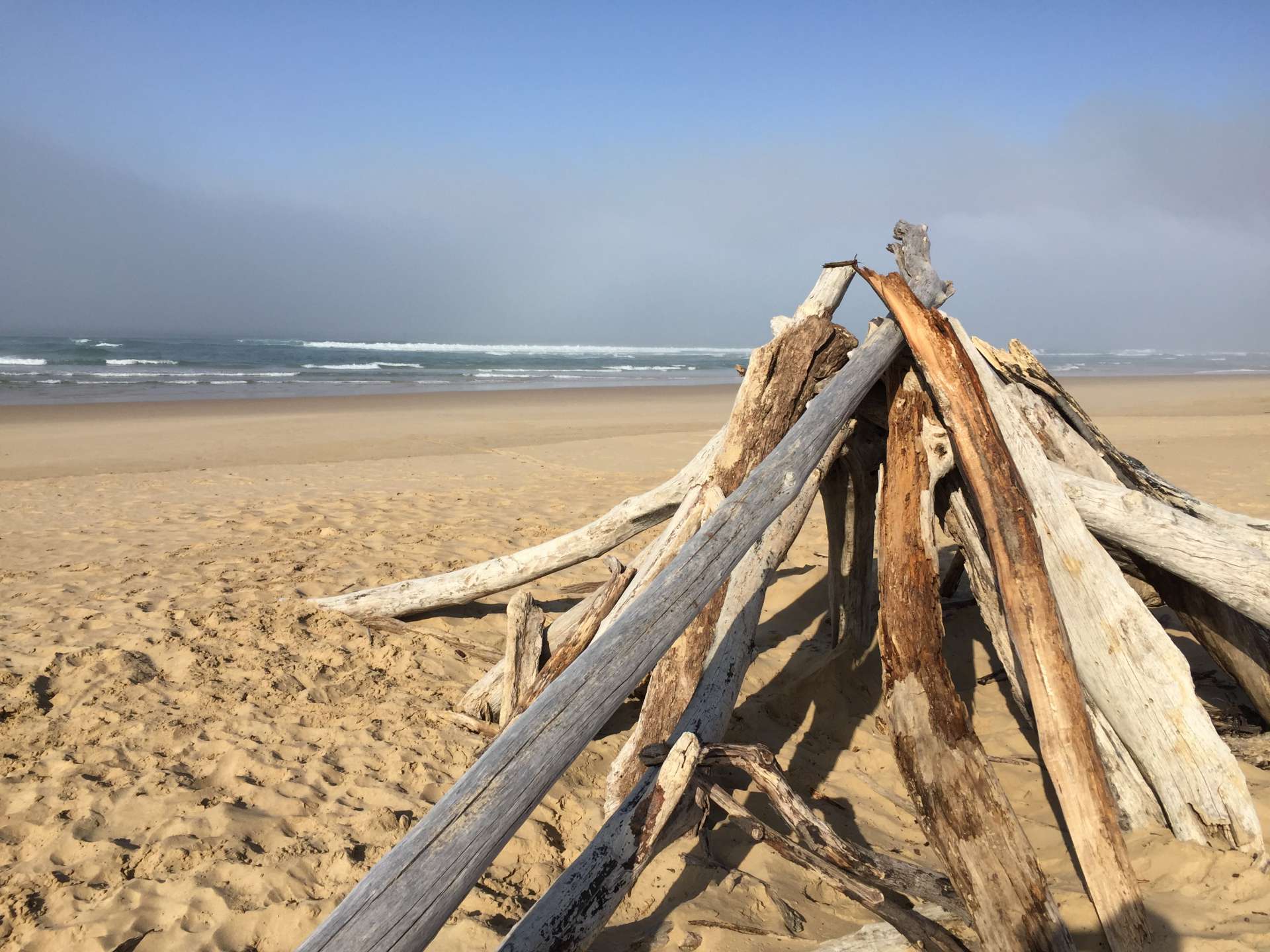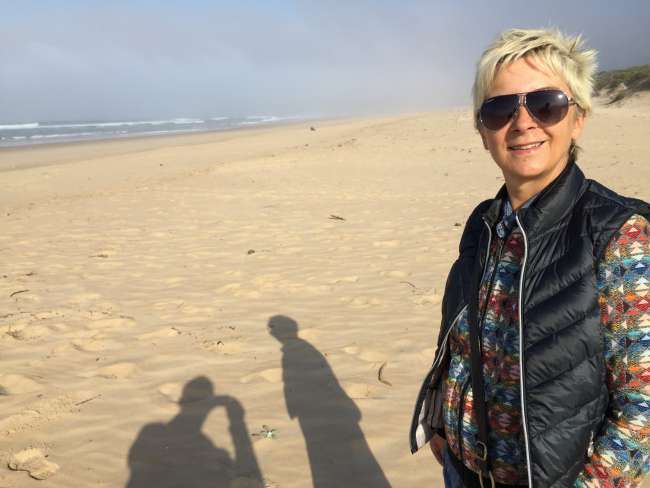Knysna - Of Monkeys and Birds
E hatisitsoe: 18.09.2016
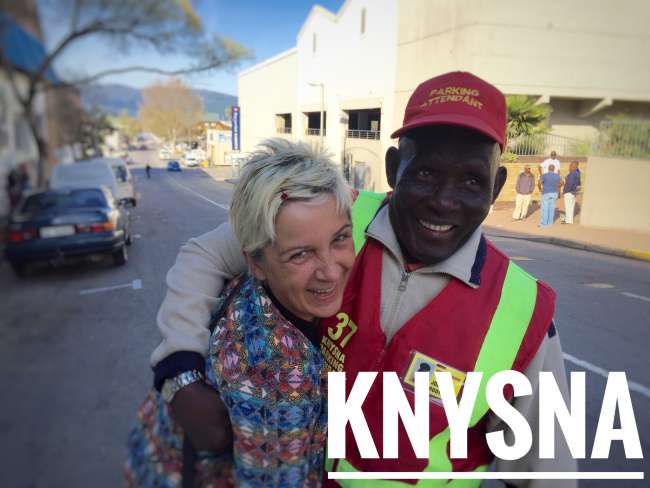
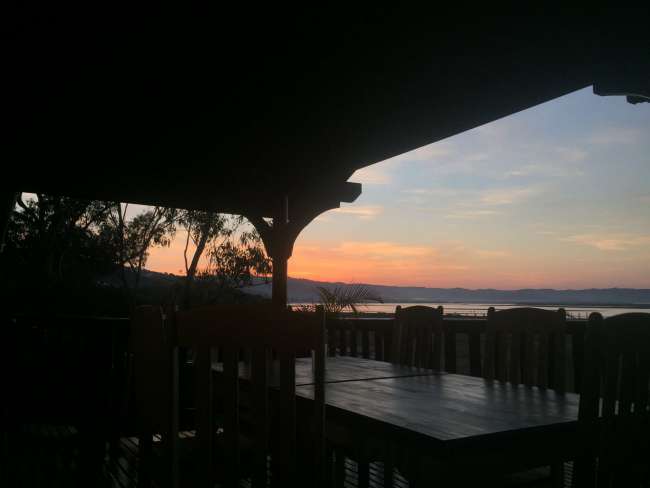
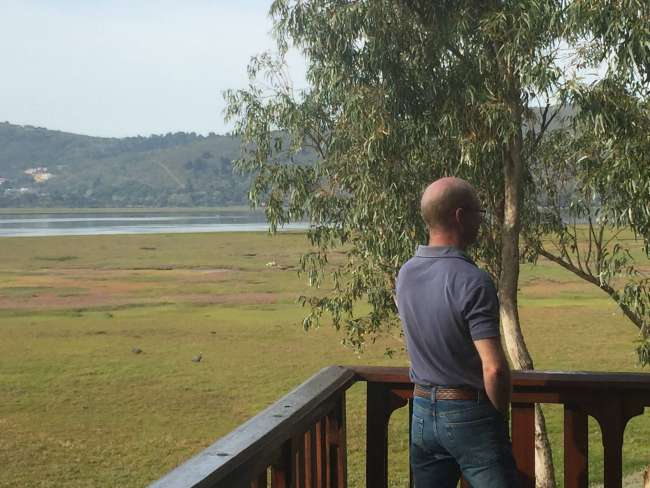
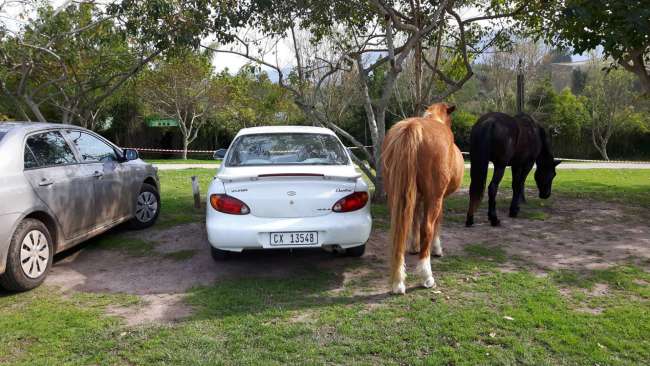
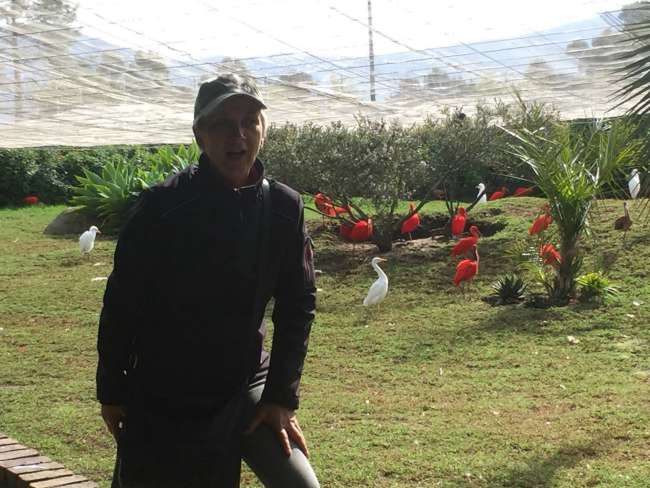
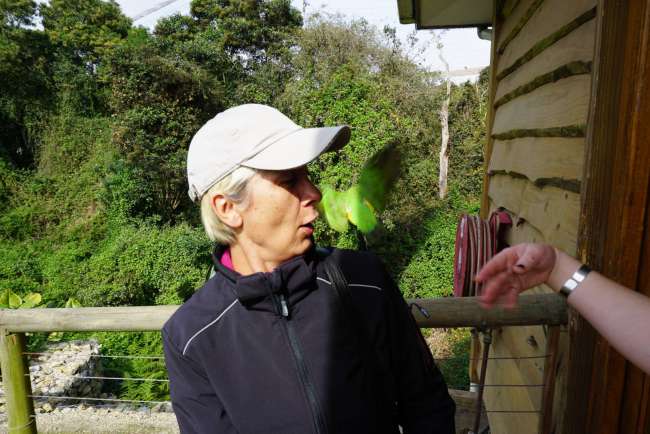
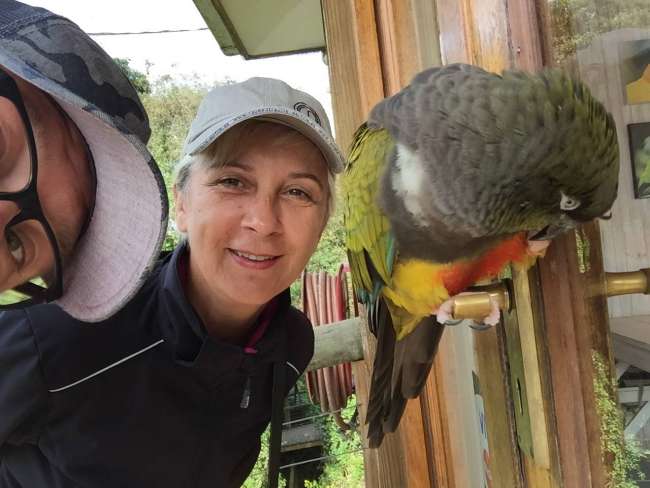
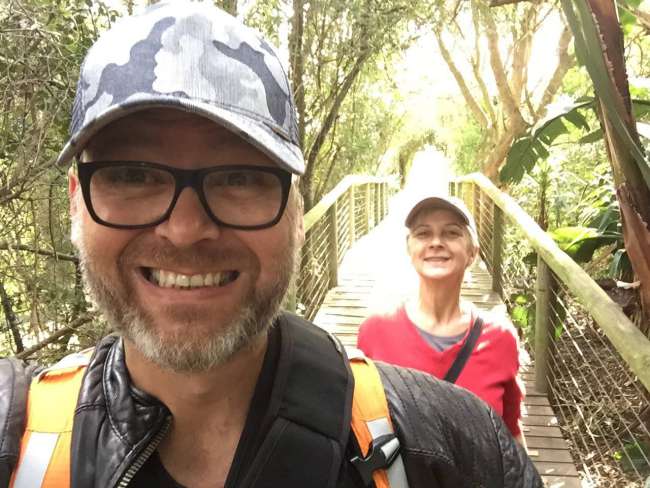
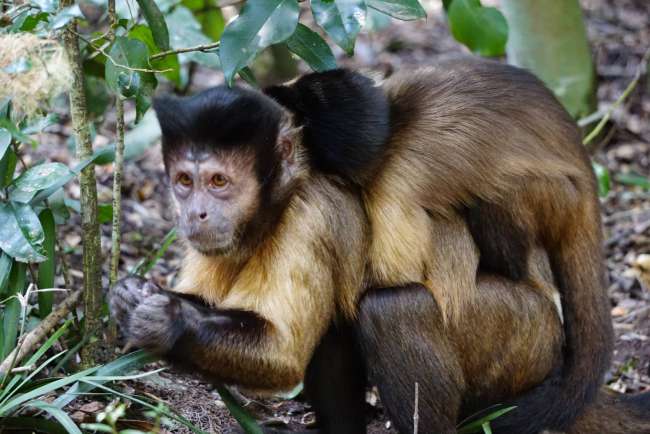
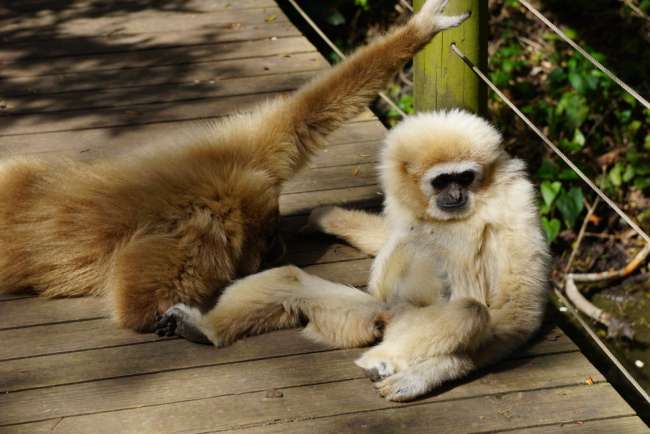
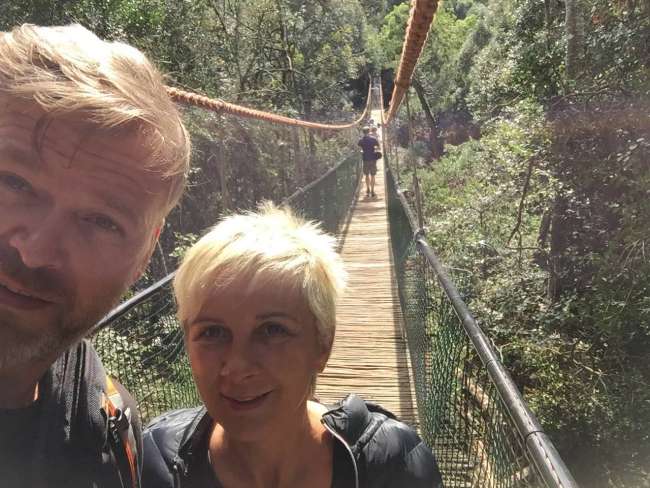
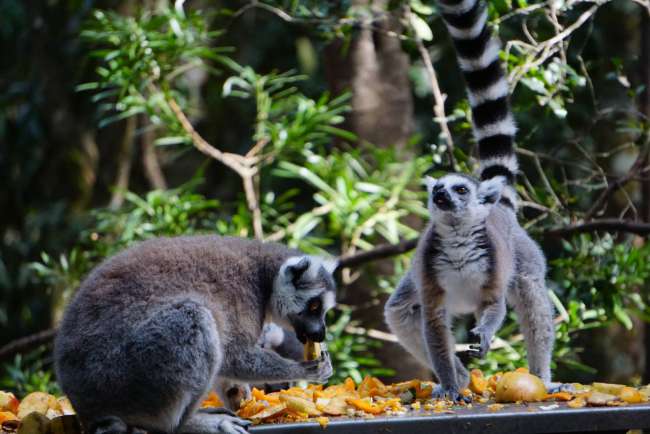
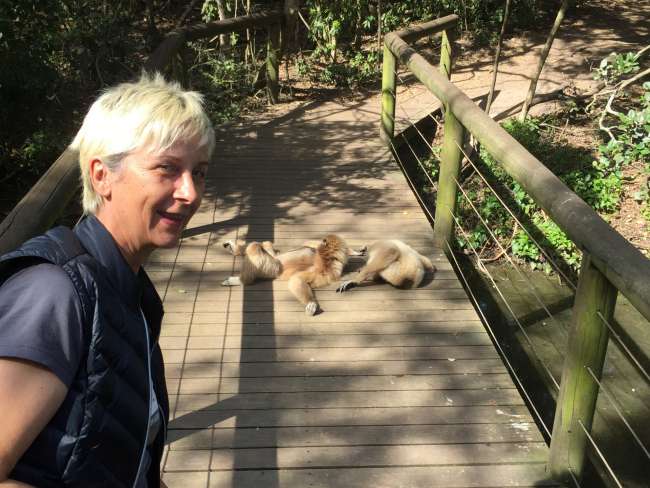
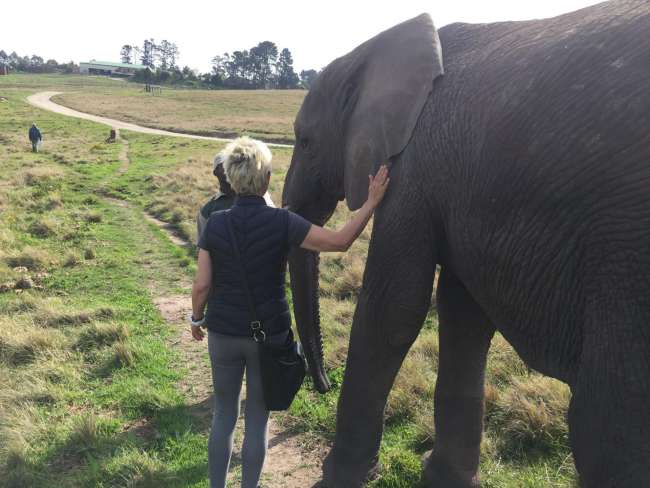
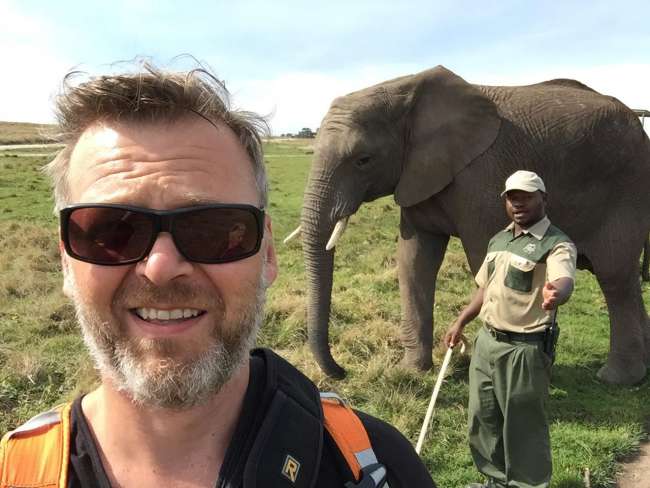
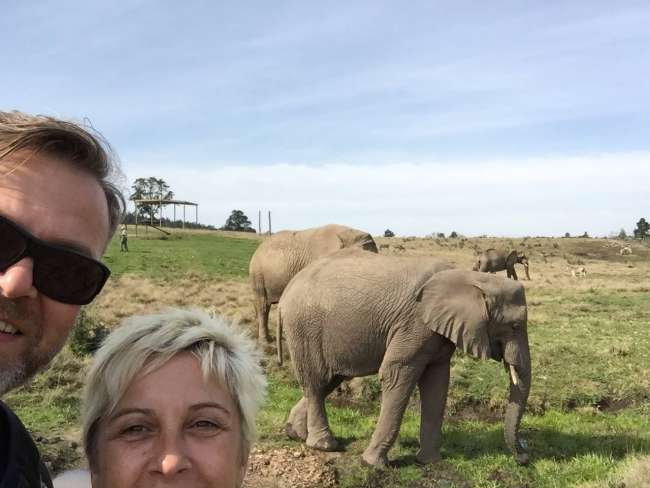
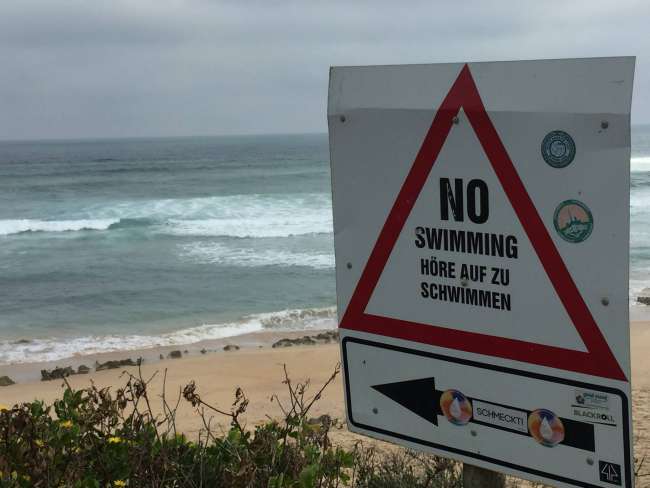
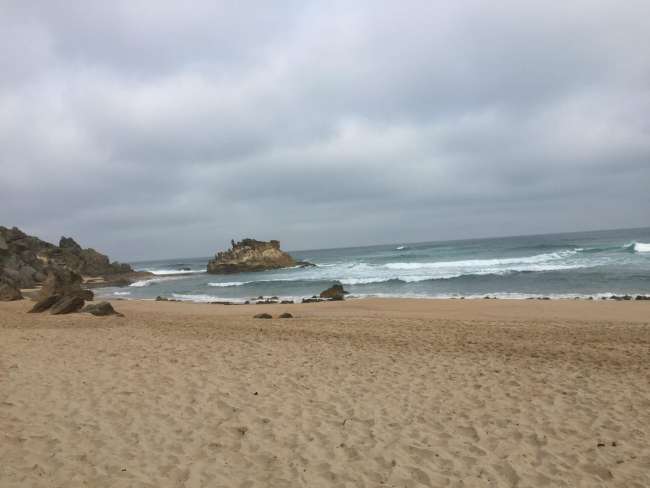
Ngolisa ho Newsletter
South Africa/ Day 7 (Sun.) - 28.8.2016
The day started with Gerhard being very sad because his fat, brown-red bird with a fluffy belly did not come to feed from his hand. He had shown me a video of his bird eating from his hand every morning. By the way, the bird preferred cheese slices. Now Gerhard suspected that a cat had eaten his friend. I speculated that maybe he had found a girlfriend to comfort him. But Gerhard was inconsolable.
Two nice housekeepers prepared us breakfast according to our wishes, the coffee was already ready when we entered the breakfast room, and the small buffet was set up. Everything you could wish for breakfast was available, and Gerhard was always busy helping to fulfill every wish.
He actually wanted to call the whale watching guides for us to inquire about the sea conditions, but we preferred to stay on land. With so many offers, we didn't want to be pressed for time.
After breakfast, we drove towards Plettenberg Bay, called Plett, and were stopped by the police at a major intersection. They asked for the driver's license and vehicle documents. JC got out to get the requested papers from his backpack in the trunk and realized: he hadn't taken them with him for fear of theft and robbery, but had locked them in the safe in our room. I could already imagine us behind bars! But the policeman took pity on us. He explained that everything in our trunk was safe because it cannot be opened from the passenger compartment and is always automatically locked. He let us drive after we provided our names and birth dates (for some reason), but not without emphasizing that there are not many policemen in South Africa who are as nice as he is.
At around 10 o'clock, we reached the "Birds of Eden Reserve" highly recommended by Gerhard. It is the largest aviary in South Africa or the world. In the parking lot, there were also two horses parked parallel to the cars, which looked very funny. When we asked a fat man, who was petting them, if they were his, he said: "No, they live here! FREE!"
The bird paradise is beautiful, you walk on wooden walkways between the trees. There are benches next to the feeding areas, and hundreds of different birds flutter around. Or swim or run. We couldn't enter a café in the park because a parrot was sitting on the door handle. He was trying to get into the café with this trick. When the waitress opened the door for us, he succeeded (but was immediately caught again and taken outside), while another bird jumped onto my shoulder and tried his luck as a stowaway. He too was chased away by the waitress. Additionally, an eggshell, from which some chick must have hatched, fell from a tree right in front of our feet. So we witnessed a birth without knowing which one it was.
Next, we visited the monkey park. These are all privately owned parks. They take in animals from private ownership, animal testing, and zoos, rehabilitate them, and then let them live almost freely. We had a guided tour of the monkeys in German. Ricardo, a strong, young black man with a missing upper front tooth, led us through the dense forest and showed us all sorts of monkeys. The green vervet monkeys, who had watched us at breakfast in the other camp, are called blue vervet monkeys here because they have blue testicles. Ricardo spoke very good German, which he claimed to have learned in school, and knew how to tell us many things in a humorous way. We have learned so much more about animals here in South Africa than we ever did in a zoo in Germany. Those who have experienced these parks consider keeping animals in European zoos as cruelty to animals.
Whenever we had the opportunity, we asked the Black people about their living conditions. They earn extremely little money but do not complain. At the moment, they are very hopeful because they expect improvements from the newly elected party.
The unemployment rate among Black people is still very high many years after the end of apartheid. Those who are able to work do not receive financial support from the state. Children receive €15 per month, retirees receive €100, which is not enough to live on. Everyone else survives on odd jobs or stealing, Ricardo said. We also met an 18-year-old German volunteer at Monkeyland. What a wonderful opportunity to get to know the country and its people!
At the Knysna Elephant Park, where we went afterwards, almost exclusively people from Zimbabwe work. They do the work that South Africans don't want to do, they said. Our guide was named Wilfred (he joked that he was a German who had been in the sun for too long) and explained that his name means 'want peace'. He lives near the park with his wife and two children, one of which is only a week old, and takes care of elephants and tourists around the clock. He and his countrymen in Zimbabwe wish for a white person, preferably a German, to be in power in their home country because they believe they have a better understanding of economics, he explained to us. In contrast to the Addo Elephant Park in Port Elizabeth, we got very close to the elephants here in Knysna. We fed them and were allowed to pet them. Wilfred showed us where the animals stay overnight, told us the story of the park and the elephant population in South Africa.
In the late afternoon, we drove to Brenton on Sea, a small town on the back of the peninsula where we visited the nature reserve yesterday, right on the Indian Ocean. It looked like a spa town: the kilometer-long beach, the hotels, guesthouses, and streets - everything was very well maintained.
We only paid €5 for our coffee, a piece of cake, and a pack of chocolate cakes at the café of a hotel by the beach.
Another thing we noticed during our car rides: Here in South Africa, there are many fewer road signs than in Germany, but everything is understandable. There are no billboards along the roads, and signs for tourist attractions are uniformly brown signposts. We really like that.
Furthermore, there are no hotel skyscrapers blocking the view of the natural beauty. There are predominantly smaller hotels, guesthouses, and B&Bs.
In our rooms, we always slept in double beds with only one mattress and one blanket, which challenged JC and me. Whenever he moved, I would lose the blanket, and I would swing with the mattress. But on vacation, we can handle that.
In the evening, we had dinner on Thesen Island, one of the islands in the Knysna Lagoon. The island looked like Port Andratx in Mallorca. Many illuminated shops, narrow streets, bridges, holiday homes, boat docks, and countless real estate agents. All the trees were decorated with fairy lights. The restaurant was a good recommendation from Gerhard. I had a beef fillet, so tender and juicy - unbelievable. JC opted for the best burger of his life. So, South Africans know how to handle meat, even better than a German Michelin-star restaurant. And certainly not at such prices. We paid €20 for everything.
See you soon...
Tatjana
By the way, I also write on: https://www.facebook.com/rucksackfrei/
Ngolisa ho Newsletter
Araba
